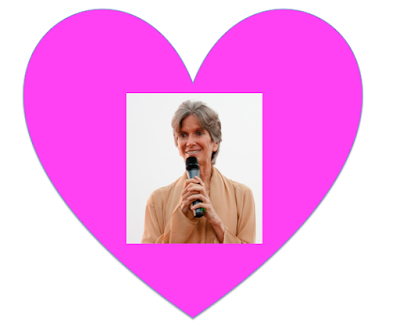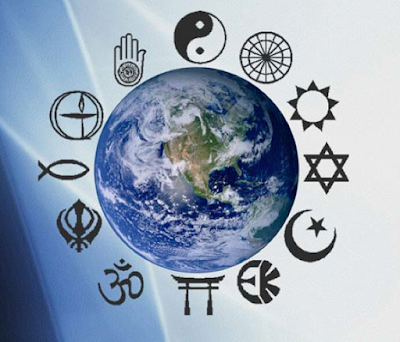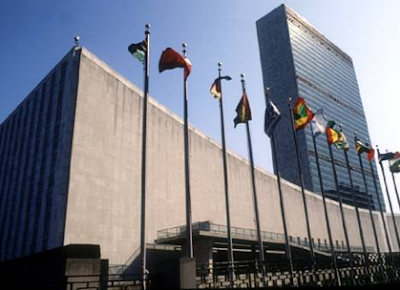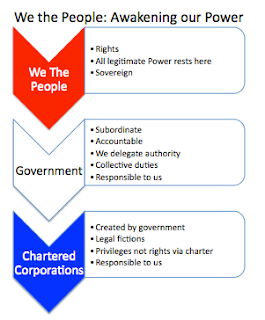Today, as the month changes over, I look back on the changes in my life since the conference, and what comes to mind are the two women riding the bus with so many grocery bags and two children in tow. They lived on the other side of the airport where there were no grocery stores. The food they bought was devoid of fresh vegetables or organic fruits. The children snuck potato chips and drank coke. They joked with me about their need for utter cleanliness ( I joked back my daughter has that problem, but not me). I thought about the project – the happiness initiative – and the conference and feel this deep longing for social justice. I remembered my mom bringing home government cheese, and while we did not live in a food desert, we lived in a home that did not have food the last half of the month, although my mom did her best. This happiness thing is worthwhile – its important – as long as we keep it real, we keep it honest, we live with integrity to the work and to each other. This happiness thing is meaningful if and when it means that mothers like those I met on the bus do not have to travel uncomfortable miles to feed their children unhealthy food, but can go down the corner for a fresh, organic and affordable pear and carrot if they want. It’s just real simple and honest stuff.
Monday, April 30, 2012
A confusion of happiness
Today, as the month changes over, I look back on the changes in my life since the conference, and what comes to mind are the two women riding the bus with so many grocery bags and two children in tow. They lived on the other side of the airport where there were no grocery stores. The food they bought was devoid of fresh vegetables or organic fruits. The children snuck potato chips and drank coke. They joked with me about their need for utter cleanliness ( I joked back my daughter has that problem, but not me). I thought about the project – the happiness initiative – and the conference and feel this deep longing for social justice. I remembered my mom bringing home government cheese, and while we did not live in a food desert, we lived in a home that did not have food the last half of the month, although my mom did her best. This happiness thing is worthwhile – its important – as long as we keep it real, we keep it honest, we live with integrity to the work and to each other. This happiness thing is meaningful if and when it means that mothers like those I met on the bus do not have to travel uncomfortable miles to feed their children unhealthy food, but can go down the corner for a fresh, organic and affordable pear and carrot if they want. It’s just real simple and honest stuff.
Monday, April 23, 2012
Saturday, April 21, 2012
Earth Day's Eve: Lessons from Earth and Spirit
- Take responsibility. Happiness, sustainability and a better future is not a right, it's a responsibility. Accept this and see how important every decision and action is. Understand how interconnected you are and each action is to the system. (Later in the day, I learn how these can become rights!)
- Create a vision of the world you want, based on your values. This is like creating your own mission statement, one of those “seven habits of highly effectively people.”
- Seek quality information. In this one, you hone your information gathering. Sometimes this means tuning out of certain media so you can tune more closely into high quality sources.
- Discover practical actions. Don’t reinvent the wheel! Join other efforts or build on other efforts before going out and doing your own thing.
- Act in line with your values.
- Incentives for consuming less not more.
- Ordinances to encourage urban agriculture and distribution
- Ordinances that allow neighbors to share power when they have geothermal, solar or other power sources
- Laws requiring take back and recycling for companies using materials
- Increase tax rates to what they were in the 1950s
- Ordinances to use wellbeing measures (the happiness initiative!!!) instead of purely economic metrics.
- Law that everybody has a right to healthy and adequate food
- Ordinances that encouraging co-housing
- Mend the rich poor gap by passing ordinances to define a maximum annual income
- Pass an ordinance that ends the externalization of environmental & social costs in business
- Laws to ensure true transparency of information
- Laws ensuring balance of power in courts for people and corporations
Sunday, April 15, 2012
YES: The UN Embraces the Economics of Happiness
We've forgotten a lot of what we used to know about happiness.
Tuesday, April 10, 2012
Happiness In The High Sierras: Measuring Quality of Life in Nevada City
A repost from CSRwire
Wednesday, April 4, 2012
Susan Andrews
 Susan Andrews is, as the Prime Minister of Bhutan says, the ambassador of Gross National Happiness in Brazil. Her life changed 20 years ago when the Prime Minister asked "Why is Bhutan the only country pursuing Gross National Happiness when happiness is the ultimate goal of all people."
Susan Andrews is, as the Prime Minister of Bhutan says, the ambassador of Gross National Happiness in Brazil. Her life changed 20 years ago when the Prime Minister asked "Why is Bhutan the only country pursuing Gross National Happiness when happiness is the ultimate goal of all people."What’s happening at the UN this afternoon?

It is late in the afternoon for a conference, but still many people are here. The Prime Minister opens with a moment of silence then a gentle joke about sleepiness. Each group met to make commitments. The Prime Minister asks for thoughts and ideas – but only processed thoughts meaning they come via the group leader or other person appointed – within 10 days, so by April 14. These thoughts are to be finalized by the second week of May and this report will be submitted to the Secretary General with copies to all. The Prime Minister will forward the 12 policy recommendations to each head of state in the world, even calling some on the phone.
The reports:
Expert Group
The scientists and academics decided to focused on formation of a commission and what its goals would be. Perhaps it would be called the Global Wellbeing and Happiness commission. It would facilitates this great transition to a new economic paradigm where happiness and well-being are the focus. The commission would produce documents, recommend proposals for action, employ the new communications technologies and take action to make this activity more broadly participatory. Some models mentioned were the New Iceland Constitution in which participatory democracy is embedded; Wiki-style peer reviewed encyclopedia such as Encyclopedia of Earth in which there is also attribution, funding through
Communications Group
This group decided to gather information and create a space on the website with calendar, blogging, subscription only, create materials and other resources. They are writing a press release to get it out in at least 12 languages and release that this evening. They are putting together a global press release. For internal communication, they are creating a network so there is a way to keep in touch. They are putting together a package for Rio +20 based on the findings of the expert group. They are putting together a global press release.
Civic Group
My group again! Coyote is the UN person who gifted us with his presence. He reported our recommendations and pledges. There is an absolute need for an open source communication or portal, so we can all communicate and read responses. We recommended more reflection on the process, and that Bhutan continues championing the movement. We felt a clear need to broaden the constituencies and composed a broad letter of outreach for everyone. Civil society groups are very diverse, and we felt we are not one of the 9 groups of agenda 21, but instead “yeast” to reach out and “grow the loaf” so all can enjoy a communion of subjects and not a group of objects. We desire to create a inclusive diverse membership. We gave great thanks for the opportunity for this event.
Spiritual Community Group
We reflected on the small representation of the traditional and non-traditional faiths. The desire is to embrace and include every faith-based group including humanistic faiths, atheists and agnostics. We all pledged to help outreach by reaching out to all our networks – regardless of basis of faith. In our group, each gave their contacts.
Planning Group
The planning group highlighted the process and how much in these three days the process has been broad, inclusive and learning demonstrates a process that works. This process needs to be reflected in the other groups and in the reports. We must fine a way to ensure the reports are as broad and inclusive as possible. The planning group intends to continue to plan with a committee of 5 that plans to continue to work for the next 18 months. The planning group committed to a workshop for Rio +20 to discuss resiliency- a people's summit; to work with the G20; Clinton Global Initiative; the Corporate Sustainability Forum; the Council on Wellbeing; The UN General Assembly and UN Quadrennial Comprehensive Review; Local Government, Education and Families. They will develop a methodology for civil society and businesses based on experts recommendations.
They made recommendation for youth engagement based on collaborative participatory decision making and engagement with youth at the university and campus level.
Major points from the planning group:
Continue support local economies
Continue to be inclusive on a local platform
Utilization of a rights based approach that empowers women
The Prime Minister concluded with words of love and thoughtfulness about this sustainable, holistic movement and the effort that it will take. Here are bits for what he said "People resist change, even when it is unsustainable and self-destructive, even when they know they are in pain and suffering. THis is the difficulty we face. People today acknowledge and accept change is necessary, but the willingness is not here. It will be difficult. We started with a bang, from the fringes to the established. We had leaders from key countries, but this is not the end, this is only the beginning. We must prepare for many disappointments, many frustrations. What is important is that we should not be deterred. We have to continue with the kind of commitment and dedication and devotion. The sacrifice we make is worthwhile, will be worthwhile, and if we continue with this spirit, it will be a big success. Do not think the success will be at the Rio 20+. We are proposing a total paradigm shift. Yet ridged systems are being proposed. I am not sure how much our ideas can be inserted into Rio 20+, but I will represent these ideas as accurately as I can. " The Prime Minister asked for a slot at Rio 20+ when people are listening - not asleep - when the timing is prominent. He promised to do his best to ensure the UN general assembly will continue discussing GNH.
"You gave me a mandate to appoint a commission. The commission we will establish will comprise the most eminent of scholars and who are committed to the advancement of our goal. However, there might be a bit of a delay in the establishment of this commission. I shall work with the UN to see how this commission can be co-owned by the UN and perhaps function under the auspices of the UN system."
"You came here to be a part of this process and now have a responsibility to be a part of the process." The Prime Minister established a Secretariat of several people who helped make the conference happen. He designated all of us as members of the secretariat.
"We worked hard, you worked hard, over 3 days, perhaps more. It has been a very satisfying endeavor so far. The media has been supportive. I believe a majority of the people around the world are aware of this effort and contemplating he soundness of the present way of life and the need for a different way of life. A way of life that is more meaningful, more just, that will lead us to what each of us desires in life as an ultimate goal: happiness."
Spirit in Happiness

Noon and we head back into our work groups. Mine includes the spiritual leaders. We sit around a large wood table in a circle, and start organizing the few hours we have left. With such huge momentum built, and so much to do, two more hours together is beyond frustrating. The spiritual leaders bring calm. We talk in specifics about how to bring forward this movement in the spiritual community.
It is good to focus on something tangible and complete something, even if just a small task, when you are trying to change the world.
In my post earlier today, I mentioned a statement by the spiritual leaders. It is here:
Spiritual Leaders’ Statement for Suggested Inclusion in Policy RecommendationsHigh Level Meeting on Wellbeing and Happiness: Defining a New Economic Paradigm, April 2-5, 2012, United Nations Headquarters
As leaders representing various spiritual traditions, we believe that in the new economic paradigm, the role of spiritual traditions is to preserve and transmit to future generations the wisdom and love inherent in their own religious heritages, and the knowledge that the world is one community, interconnected and interdependent. The new economic paradigm is based upon compassion, altruism, balance, and peace, and dedicated to the well-being, happiness, dignity, and sacredness of all forms of life. Because external economic realities mirror internal psychological and spiritual realities, participants in the new paradigm pledge themselves to ethical conduct, reflecting and holding them- selves to the highest level of integrity and virtue, increasing their sharing and dedication to others, and resilience in the face of challenges. Because economics is based upon relationships, in the new paradigm, relationships are characterized by active service, justice, and cherishing the dignity of other's lives. We commit ourselves to thus nurturing the new economic paradigm personally and collectively in our own faith communities. May the new paradigm swiftly blossom throughout the world for the benefit of all those alive today and future generations yet unborn.
What’s happening at the UN today?

Today is day three of the Wellbeing and Happiness: Towards a New Economic Paradigm conference at the United Nations. We spent the first day building momentum with speech after speech by world leaders (presidents, prime ministers…)
Day two we went into breakout sessions. Today all three groups presented their work to the Prime Minister. But before we began, we all spent two moments in silence. Two brief moments of eternity.
Experts Group
The experts group was composed of academics and scientists. They reviewed the 12 recommended global policies and then agreed that a new goal is need, as per Dana Meadows suggestion In Limits to Growth. Bob Costanza presented their findings in graphics with the pillars of Well-being and Happiness, Ecology, Fairness and Efficient Use of Resources overlaid by natural, social, economic and personal environment. They saw four needed strategies: (1) a complex systems-based approach, (2) trans-disciplinary (beyond interdisciplinary), (3) adaptive management, and (4) participatory, solutions focused. They called for working groups to focus on (a)definitions and measurements, (b) Complex systems, (c) Institutions and Governance, (d) Financial systems, (e) GNH Enterprise, and (f) Education for altruism and compassion. A man who works at the UN cited the UN Resolution on Happiness 65/309: and suggested the committees for development policy and quadrennial policy review are a good place for the work of the suggested groups to start. John Helliwell gave deep thanks, and talked of last year when the UN assembly broke into applause when the Prime Minister introduced the ides of happiness and well-being to the UN. Someone suggested that happiness become one of the UN Millennium Development Goals.
During the Q&A, one of the religious leaders challenged the science-based approach, stating we need a heart-spirit based movement. Bob agreed that we need a different approach within science, but that all the fields are needed.
Communications Group
The group identified three categories for their strategy: (1) Presenting a business case of the New Economic Paradigm, (2) Creating a communications roadmap and (3) use of Information Technology. For the business case, they talked about core components: Justice: Economic Social and Environmental, Survival of the Planet, Profitability of Business; and Personal well-being, health and happiness. For the road map they talked about the need to design, identify, create and disseminate effective communication. They identified the aspects of a Framework: Values, Target Audience, Message framing, Channels and Structures/Resources.
They identified some talking points:
- UN Resolution on Happiness
- Happiness and wellbeing dovetails with your mission
- Give examples of what you plan to do
- Examples from elsewhere
- Each country defines happiness and well-being for itself
- Sustainability is a part of happiness and well-being
- Happiness and well-being is good for PR, who can object to this goal??
- Happiness and well-being leverages citizen action
- Promote local initiatives and improvements
- Participation improves happiness
- "If you are associated with this, you will look good"
The communications team called on a permanent secretarial that would oversee technical teams, communications and dissemination. They talked about a resting place for all the content out there: from social media to marketing and advertising campaigns. One comment was the need for un-branding the movement so it is not owned by any one or group of organization and thus more accesible. There was dissension with the idea of a business case - which is to make money, and the need for a moral case - because more than just money is at stake, but the future of the planet and people. One of the religious leaders asked what the impact of those who do not want a new economic paradigm will be.
Civic Group
This is the groups I was in. It was a rockin' day. We were supposed to plan a global movement to implement gross national happiness. Hunter Lovins presented to the group. We created a charter for the work : We as inhabitants of an interdependent global system... Three things to do: (1) Create a secretariat (just like the communications group said). (2) Create a Happiness Bank that is outside the debt based system which would fund projects outside the economic paradigm and raise 7B dollars, one dolar for each person on earth, then put place a board of elders from around the world. Lots of other plans for the bank were laid. (3) Conduct outreach to the world will, which includes building a new accounting system, using new indicators, transforming education, offering tangible toolkits, providing a databases of known solutions and many many other strategies. To get this work done, a shift in values is needed. A shift from the consumption society, a shift away from the goal of economic growth, a shift towards compassion and altruism.
World Religious Leaders Group
Our group had a subgroup of world religious leaders. They began their synopsis with a chant by a monk from Bhutan. In English it is: happiness, compassion, joy, equanimity, They spoke of the need for deepening and strengthen altruism and compassion. They called on a 1% campaign in which all people give 1% of their time and 1% of their money to a charity. They asked that all happiness meetings to open with a moment of silence. They crafted a statement which they all signed but I caught just a little bit: "As leaders representing various spiritual traditions, we believe that in the new economic paradigm, the role of spiritual traditions is to preserve and transmit to future generations the wisdom and love in their own religion, heritage... The new economic paradigm is based on compassion, altruism, balance, peace.... A pledge to ethical conduct..."
Planning Group
They all agreed that process is as important at the product. They identified the major conferences of initiatives coming up in the next 18 most. They looked to Occupy as an important player. They identified who in what group would conduct face to face meetings with people at RIon +20. They recommended a local strategy with local action. They decided they needed to offer a tool-box of established best practices. The importance of including and harnessing the power of youth was highlighted. Money and capacity building must be a part of the planning and strategy. They created a press release for the movement. During the planning group's Q&A, a woman asked: How will we know when we are successful. The outcomes need to be developed so they are adaptive.
Yesterday at our working group we closed with a blessing by each, all of us holding hands and each leader saying a prayer then a short song. Today the session was closed with a intergenerational blessing by Rabbi Soetendorp.
This is a synopsis of the work of over 200 people who stayed after the first day, when there were over 650 people. Each of these people are amazing, highly qualified leaders in their field. The work we did yesterday to lay the groundwork for a global movement was powerful, and the world needs us to take action now.
Monday, April 2, 2012
My day at the United Nations

My day at the UN was… spectacular, under-whelming, over-brimming, predictable- a paradox. The Prime Minister of Bhutan talked of a new dawn, the President of Costa Rica talked of the connection between society and the environment (imagine that education and a robust social policy is linked to preservation of the environment...), Vandana Shiva talked about local food systems, and the list goes on: Seligman, Jeffery Sacks, John Helliwell, Enrico Giovanni, Lord Layard, Secretary General Moon of the UN….. and these are only a few of those who spoke…. yet those listening could have filled an agenda in themselves.
Well, my day at the UN was overwhelming. Here is what happens: you enter the gate like anyone. You do through a screening like at the airport but you do not have to take off your shoes. You then walk through the main hall (with an exhibit about women and development – but through the day you notice how few women were speaking); you walk a windy path to a annex, and then find your way to a conference room – one among many. There is guard there with a tremendously watchful eye and deep deep circles under both eyes. Exceptions make him unhappy ( I am one, and so he is not happy) . You get in by the skin of your teeth because a place is reserved for you, and now you are sitting in a quite comfortable seat with headphones in front of you and a keypad so you can listen to the speaker in any language in an excessively pleasant voice.
And you listen. And listen. And listen: to world luminaries, to Noble Peace prize winners, to presidents, ministers. But even then, what do you do? I am just a person – no expert, no politician, no world leaders, no Ph. D., Nobel Peace prize winner; but I am there, in the U.N, and so, this must mean something. What to do?
I do now know, but for now it feels like the answer is to stay the course, but to do so in a way that walks the talk – this means no more sacrifice for the benefit of others; this means take only what is freely given, give only freely, this means practice compassion and mindfulness. Doesn't it?





